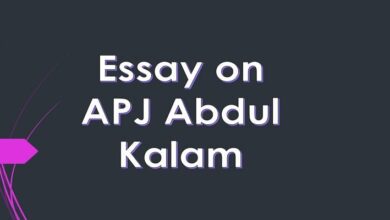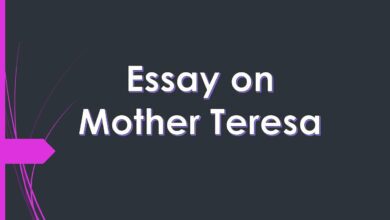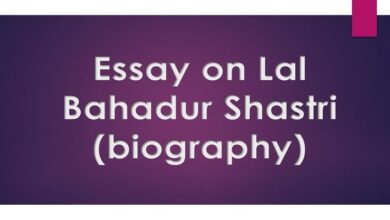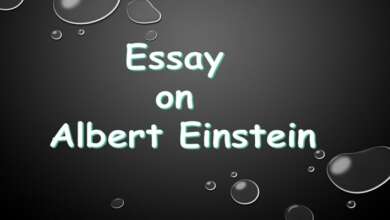Essay on Maulana Abul Kalam Azad 1000 Words in English | PDF
Essay on Maulana Abul Kalam Azad
Essay on Maulana Abul Kalam Azad in English (Download PDF) – Today we will get to know about Dr. Abul Kalam Azad. His birth, education, movement, and his work, so let’s start.
Preface
Many great men made their invaluable contributions to making the country independent. There are many great men among them whose sacrifices were relatively much. Maulana Abul Kalam Azad’s name comes in such a great man. Whose sacrifice always reminds us of them. The unique and commendable work that Maulana Azad did for our society deserves to be written in golden words in the history of Indian independence.
Family and Birth
Maulana Azad’s ancestors came to India from Iran during the reign of Mughal ruler Babur. His father’s name was Maulana Khairuddin Haider who was a great scholar of Arabic in his time. Suffering from the repression cycle of the British, Maulana Khairuddin left India in 1857 and settled in the religious environment of Mecca.
At the same time, he was also married to the daughter of an Arabic scholar. Abul Kalam Azad was born in Mecca on November 11, 1888. His parents moved to India only 2 years after his birth. Abul Kalam was the youngest of his five siblings.
Early Life and Education
Maulana Azad’s childhood name was Ghulam Mohiuddin Haider. He was unable to tolerate the word Ghulam with his name in any way, so he changed his name from Mohiuddin Haider to Abul Kalam Azad. This self-given name later went on so that the real name was completely lost.
He was a man of great talent since childhood. His early education was started at home by his father. Later, different teachers of each subject used to come to study at home. Thus he did not get a chance to visit the school. His mind was so sharp that whoever he saw once, he used to sit completely in his mind. As a result, at the young age of only 14, he had become proficient in subjects like literature, philosophy, mathematics, etc.
Read also – Essay on Sardar Vallabhbhai Patel
Writing and Journalism
Abul Kalam Azad started the editing work of a literary magazine ‘Lisanussidak’ in 1902 at the age of 14. At that time, this magazine had created a great surprise. Apart from this, Azad did efficient editing of magazines like ‘Un Nadav’, ‘Vakil’, ‘Darul Sultanate’, etc.
The British were following the policy of divide and rule. Maulana Azad knew very well the secret of this policy. For the unity of the country, he started publishing a magazine called ‘Al Hilal’ with the aim of instilling national feelings among the Muslims and creating new hopes about the country in their mind.
The magazine became so popular that not a single copy of it survived. It contained articles of national ideology. Ultimately ‘Al Hilal’ and Maulana Azad himself became the victims of the British.
The government banned this magazine. Still, he did not remain silent, he started publishing another magazine ‘Al Balag’. When this too was banned, he started bringing out a weekly magazine called ‘Paigam’. Apart from this, he also has many important works.
Hindu Muslim Unity
Maulana Azad had two main objectives – national independence and Hindu-Muslim unity. The publication of ‘Al-Hilal’ and ‘Al-Balag’ contained both these basic sentiments, which were not of interest to the then rulers. That’s why he had to stay in Ranchi jail for 3 years.
When he was released from jail, the non-cooperation movement was going on in the country. He jumped into it and came in contact with Mahatma Gandhi. Both liked each other very much. Gandhi needed a patriotic youth like Maulana. Within a short span of time, he became a very active member of the National Congress.
In September 1923, Maulana was elected the President of the Indian National Congress. In his presidential speech, he said that if we get freedom even within 24 hours from discrimination of Hindus and Muslims, then we will reject it because the unity of the country is more important than freedom. On 26 January 1924, he organized a unity conference in which he got great success.
Read also – Essay on Lal Bahadur Shastri
National Movement
In 1927, he along with other Congress leaders boycotted the Simon Commission and toured the whole country. On joining the provincial government in 1935, he was elected a member of the Parliamentary Committee. In 1940, he was again elected the President of Congress, at that time he was sent to jail along with many leaders.
In 1942, he was also sent to jail for actively participating in the Quit India Movement. His wife and sister died in the same period. The country got independence in 1947 due to the pious of devout great men like Maulana Azad.
When India became independent, Pandit Jawaharlal Nehru was elected the Prime Minister of the country. Impressed by the intense scholarship of Maulana Azad, Nehru appointed him the education minister of the country because the progress of any country depends on the education there.
Maulana’s heart was deeply pained by the horrific massacre of 1947. Maulana came after winning both the general elections of the Lok Sabha and remained the education minister of the country. During his tenure, Maulana laid the foundation of education policy for the progress of the country, he will always be remembered.
Epilogue
India feels proud to have a leader like Maulana Azad. Although he left the world on February 22, 1958, by dedicating his whole life to the country and the society, his principles and policies keep inspiring us all the time that the unity of the country is more important than the independence of the country. India will always be indebted to his sincere efforts.
Download PDF – Click Here
Q&A. on Maulana Abul Kalam Azad
Who was Dr Abul Kalam Azad?
Answer – Abul Kalam Azad, (born November 11, 1888, Mecca – died February 22, 1958, New Delhi, India), an Islamic theologian was one of the leaders of the Indian independence movement against the British rule.
Who was the first education minister of India?
Answer – Maulana Abul Kalam Azad served as the first education minister of independent India from 1947 to 1958.
Why is National Education Day celebrated?
Answer – Celebrate 11 November as National Education Day to commemorate the birth anniversary of Maulana Abul Kalam Azad, the first Education Minister of independent India.




